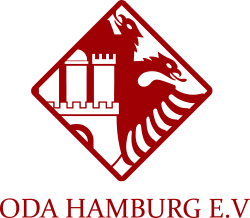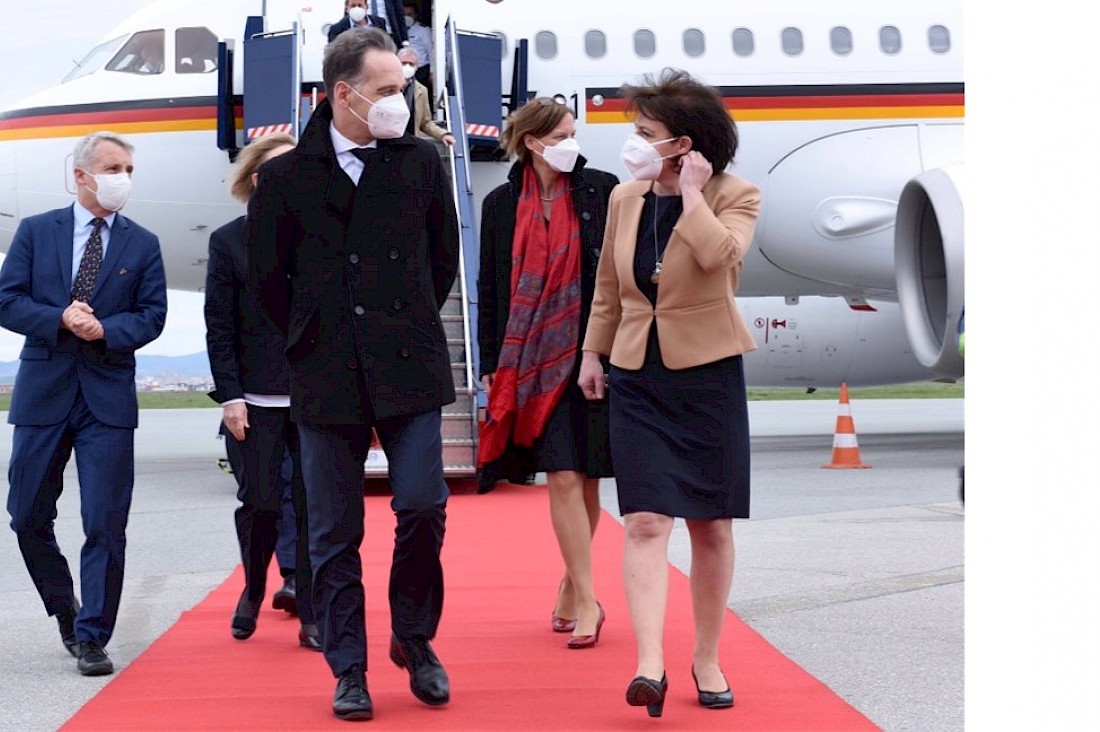Kosovo nach den Wahlen: Im Gespräch mit Außenministerin Donika Gërvalla-Schwarz über Herausforderungen, Erwartungen und Chancen
Sprache: Englisch/Deutsch (Simultanübersetzung)
*For English version please see below*
Begrüßung:
Peter Beyer, MdB, Koordinator für die transatlantische Zusammenarbeit der Bundesregierung, Berichterstatter für den Westlichen Balkan, Vizepräsident der Südosteuropa-Gesellschaft, Berlin
Muhamet Idrizi, Vorsitzender ODA Hamburg e.V., Organisation deutsch-albanischer Akademiker, Hamburg
Im Gespräch:
Donika Gërvalla-Schwarz, Außenministerin der Republik Kosovo, Pristina
Manuel Sarrazin, MdB, Sprecher für Osteuropapolitik der Bundestagsfraktion Bündnis 90/ Die Grünen, Präsident der Südosteuropa-Gesellschaft, Berlin / Hamburg
Zum Inhalt
Nach den Parlamentswahlen im Kosovo am 14. Februar 2021 bestätigte das Parlament in Pristina am 22. März eine neue Regierung unter Premier Albin Kurti (Vetevendosje). Neue Außenministerin ist Donika Gërvalla-Schwarz. Geboren im Kosovo, aufgewachsen in Deutschland und Albanien, lebte die 49-jährige studierte Flötistin und Juristin zuletzt mit ihrer Familie in Bonn. Gërvalla-Schwarz kandidierte zum ersten Mal bei den jüngsten Wahlen auf der neu gegründeten Liste von Vjosa Osmani, "Guxo!" (deutsch: "Trau dich") und wurde mit 70.000 Stimmen in das kosovarische Parlament gewählt.
Wie die neue Regierung insgesamt steht die Außenministerin vor großen Aufgaben. Vetevendosje verspricht den Kosovarinnen und Kosovaren einen radikalen Wandel im Inneren hin zu mehr Rechtsstaatlichkeit, solider Regierungsführung, Korruptionsbekämpfung, wirtschaftlichem Aufschwung und sozialer Gerechtigkeit. Das Amt als Außenministerin des Kosovo hält gleichermaßen zahlreiche Herausforderungen bereit: Wie geht es weiter mit der Integration in die Europäische Union, in der fünf Mitgliedstaaten Kosovo nach wie vor die staatliche Anerkennung verweigern? Was ist zu erwarten von den Verhandlungen mit Serbien, die Gërvalla-Schwarz nun zusammen mit Premier Kurti führen wird? Welche Rolle spielt ein „Großalbanien-Szenario“ in der Agenda der Regierung? Welche Erwartungen gibt es seitens der kosovarischen Regierung an Deutschland und die EU? Wann und wie kann die seit langem in Aussicht gestellte Visaliberalisierung realisiert werden? Wie kann die deutsche und die europäische Politik die geplante Reformdynamik effektiver unterstützen? Welche Rolle wird die US-Administration unter Präsident Biden für die Zukunft des Landes spielen?
Über diese und andere Fragen spricht Manuel Sarrazin, MdB, Präsident der Südosteuropa-Gesellschaft, mit der Außenministerin Donika Gërvalla-Schwarz.
************************************************************************************************
Kosovo after the Elections: Discussing challenges, expectations and opportunities with Foreign Minister Donika Gërvalla-Schwarz
Address of Welcome:
Peter Beyer, MP, Coordinator for Transatlantic Cooperation of the German Federal Government, Rapporteur for Kosovo of the Council of Europe, Vice President of the Southeast Europe Association, Berlin
Muhamet Idrizi, Chairman ODA Hamburg e.V., Organization of German-Albanian Academics, Hamburg
Panelists:
Donika Gërvalla-Schwarz, Minister of Foreign Affairs of the Republic of Kosovo, Pristina
Manuel Sarrazin, MP, Spokesman for Eastern European Policy of the Bündnis 90/ Die Grünen, President of the Southeast Europe Association, Berlin / Hamburg
Topic
Following the parliamentary elections in Kosovo on 14 February 2021 the parliament in Pristina confirmed a new government under Prime Minister Albin Kurti (Vetevendosje) on 22 March. Kosovo’s new foreign minister is Donika Gërvalla-Schwarz: Born in Kosovo and raised in Germany and Albania, the 49-year-old flutist and lawyer most recently lived with her family in Bonn. Gërvalla-Schwarz ran for the first time in the recent elections on the newly formed list of Vjosa Osmani "Guxo!" (English: "Dare!") and was elected to Kosovo's parliament with 70,000 votes.
Both the new government as well as its foreign minister face major tasks. Vetevendosje promises Kosovars a radical change at the domestic level towards more rule of law, good governance, a more engaged fight against corruption, economic recovery and social justice. The office of Kosovo's foreign minister itself faces numerous challenges in equal measure: How to proceed with integration into the European Union, when five EU member states still refuse to recognize Kosovo as a state? What can be expected from the negotiations with Serbia, which Gërvalla-Schwarz will now conduct together with Prime Minister Kurti? What role does a "Greater Albania scenario" play in the government's agenda? What does the Kosovar government expect from Germany and the EU? When and how can visa liberalization finally be realized? How can German and European policy more effectively support the planned reform dynamic? Which role will the U.S. administration under President Biden play in the country's future?
Manuel Sarrazin, MP, President of the Southeast Europe Association, will discuss these and other questions with Foreign Minister Donika Gërvalla-Schwarz.
In Kooperation mit:

Am 18.05.2021, 18:30 Uhr
Ort: Zoom

